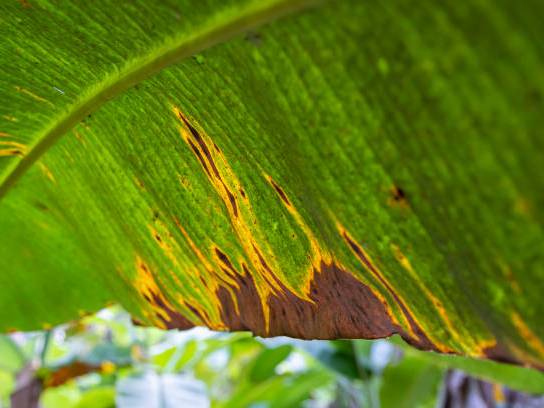Green Antifungal and Amphiphilic Kanamycin
USU researchers have designed a one-step, inexpensive synthesis of amphiphilic alkyl kanamycins (AKs) that uses all-natural components. The result is a new antifungal compound, KI07, which has in vitro activity against fungal pathogens.
Problem
Strains of various fungal species have developed resistance to commonly used treatments. Since the effectiveness of currently available fungicides is strain-dependent, there is a need for alternative treatment methods. A USU-developed antifungal aminoglycoside called K20 has been quite successful in this regard. However, the cost of production of K20 does not compete with agrofungicides currently on the market, and K20 has a non-natural structural scaffold that makes it difficult to classify as “organic” or “natural.”
Solution
KI07 is produced from low-cost, natural starting materials and derived by performing a one-step, regioselective acylation. A long linear alkyl chain generates significant antifungal and antibacterial activities. Fungi-selective membrane permeabilization is achieved by controlling the time of incubation and concentration of AKs, thus avoiding resistance.
Benefits
KI07 is more versatile than counterparts on the market, as it exhibits certain antibacterial activity and broad-spectrum antifungal activity. For example, K07 has shown strong antifungal activity against C. auris, an emerging fungus that presents a serious global health threat. KI07 can be used as a fungicide and is more cost-competitive than currently available fungicides. For example, its production cost is 1/10 that of K20. The starting materials are not only inexpensive but also natural. Furthermore, KI07 may be useful as a diagnostic tool due to its ability to provide real-time feedback regarding whether an infection is fungal or bacterial.
Applications
Although KI07 is not fungal-specific, it can be employed for fungal-specific diagnostic and therapeutic applications. Potential applications include human and animal disease prevention, diagnosis, or treatment and crop protection and disease surveillance. For example, KI07 is an ideal candidate for alternate lines of defense against human fungal infections such as C. auris. Other potential applications include nosocomial infection prevention and antiseptic manufacturing.

Contact
Questions about this technology including licensing availability can be directed to:
Christian Iverson, MBA
Executive Director, Technology Transfer Services
(435) 797-9620
christian.iverson@usu.edu
USU ID C20005
Development Stage
TRL 9

